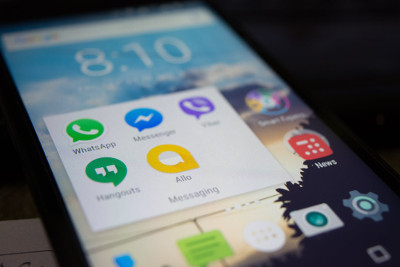Messaging apps are convenient. Everybody agrees to that. It's easy to access notifications, easy to share files and it does not have the "formality" baggage that email comes with.
Yet, messaging apps have a fundamental flaw that services like email and SMS do not have: Universality.
With email and SMS, you can send messages between any service provider. However, you can't send messages between WhatsApp and Hangouts or WeChat or Telegram. A simple process of following a protocol like XMPP or creating a global standard that all messaging apps should have followed.
So now we are stuck in a world where we compulsorily have to install whatever app a group of people uses, even if we don't want to.
Indifference
Oddly, even though the objective of messaging apps is to bring people together, that does not necessarily happen.
One of my classmates got in touch with few other classmates after sixteen years, via phone and email. He took initiative to get in touch with more classmates, and with two months of effort, he put many other classmates in touch with each other. Everyone was happy about the reunion. They asked him to create a group on a messaging app and he told them he doesn't use that app. So they created the group themselves and all of them joined the group, leaving him out. They just didn't care if he wasn't part of the group. To them, it was his fault that he doesn't use the app. Needless to say, when I saw this cold response from everyone, I refused to join the group too.
What you can do
- Tech identification: First, learn the science of identifying an appropriate communication medium. You can't use a messaging app to form a group of a diverse set of people, since many of them may not use apps. Use a more common medium like email. It's not convenience that matters here. It's uniform communication and participation.
- Talk to people: Ask everyone what they are comfortable with. If somebody is not very tech-savvy or does not use the tech y'all chose, either check if everyone else is ok with using the tech this person proposes or offer to keep the person informed always. It's your responsibility to keep the group united.
- Know the nature of communication: When there is an urgent piece of info to communicate, the ONLY reliable way to do it is to have a phone call. That's the only way you know the person has received the message. If you use email, SMS or a messaging app, don't assume that the other person has seen the message unless they respond with an "ok". Often, the response or read-receipt could be a result of somebody else looking at the message too. Do the phone call instead.
Hoping for an RFC that would be accepted universally. Messaging apps need the ability to talk to each other.

No comments:
Post a Comment